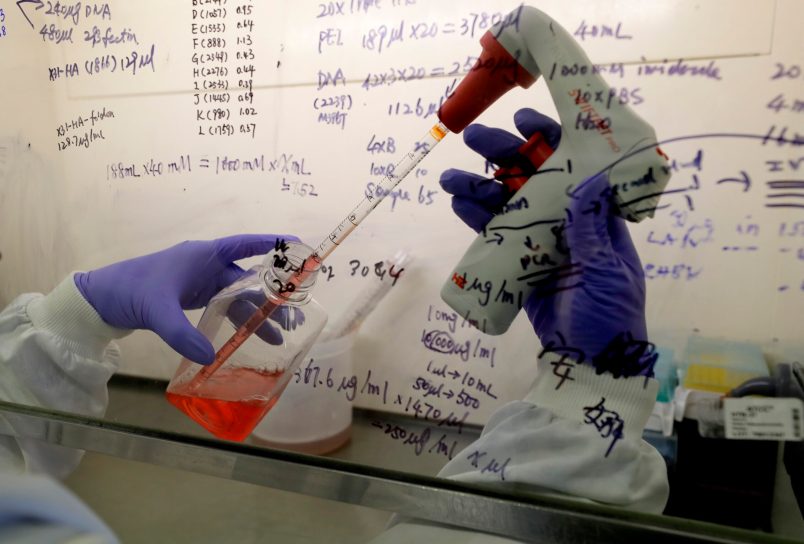You’ve probably been hearing that we’re waiting on the first lab studies of the Omicron variant’s transmissibility and immune evasion. Yesterday evening two of the first of those studies came out. Given the urgency of the situation the lead researchers released details immediately on Twitter while also publishing pre-print versions of the data. You can read one of the threads here and the second here.
Let me briefly describe the upshot. But I recommend going to the original source if you want more information. These are studies of how effectively vaccine or infection based immunity neutralizes the Omicron variant. This looks at the first line of defense antibody response. As expected protective antibody immunity declines a lot against Omicron. Like a lot. That’s been expected. And reactions from experts reviewing the data has essentially been ‘not great but could have been worse’, generally in line with expectations but avoiding some of the worst scenarios.
The finding that jumped out at me, especially from the first study, is that two shots of an mRNA vaccine didn’t hold up very well at all against Omicron. But two shots plus infection was substantially more robust. Again, I’m just to summarize a lot of expert reaction in ordinary English. But my general summary of these reactions is that 2 shots alone probably wasn’t enough protection but two shots plus infection likely was.
Here I want to stress that these studies only look at one aspect of immune response, the sort of first line of defense that keeps you from getting infected at all. They are also lab studies. So they are highly indicative of what happens in the real world. But they don’t perfectly capture all the different factors at play in real world settings. Finally, they both involve very small sample sizes. (One involves ‘live’ samples and another an engineered version of Omicron.) There is also a strong general assumption – though these studies don’t look directly at this question – that vaccine and infection immunity will still provide a lot of protection against severe disease.
Now here’s the part that jumped out at me. As I noted above, the best protection seemed to come from two mRNA shots plus infection. When I saw this I thought, well, that’s a bummer. I haven’t had COVID and I certainly don’t want to go out and get it now. But a lot or most of the expert analyses of this data seemed to assume that this wasn’t so much two shots and infection as three cumulative exposures. In other words, most see this as a sign that boosters will either be equivalent to two shots and infection or in the same ballpark in terms of protection.
So again, if you haven’t, get the booster.
It wasn’t clear to me how speculative this assumption is, speculative and hopeful, or grounded in underlying science. Perhaps a bit of both.
If you want to hear directly from relevant experts, here’s the Twitter list of experts I curate for just this purpose. And check the links above to the two threads I am referring to.


 Members-Only Article
Members-Only Article
